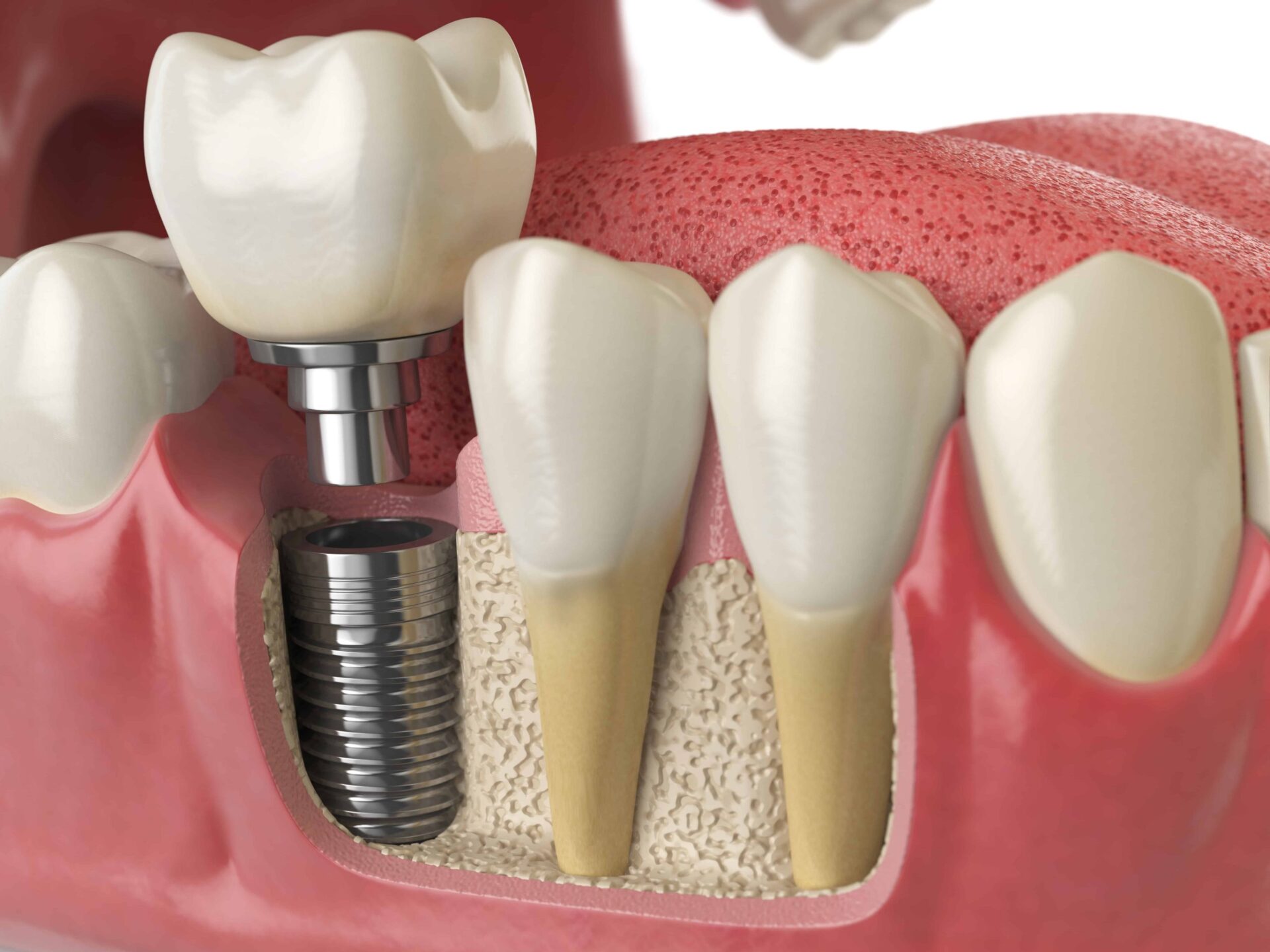Dental implants are known to have one of the highest success rates among dental treatments, but there is always a 5%-10% chance of failure that you should be cautious of. Once the procedure is done, it’s important to follow the dentist’s instructions for dental implant aftercare. Following these tips will not only help you maintain the results but will also help you with an easy recovery.
In this guide, we’ll cover all the dental implant aftercare you will require right after the treatment as well as in the long run.

Here are dental implant aftercare tips you’ll need to adopt immediately after your surgery until your implant heals.
Here are dental implant aftercare tips you’ll need to adopt immediately after your surgery until your implant heals.
While you’ll be able to do normal activities like household chores and driving, you should try to avoid doing anything strenuous like exercise. This is because you don’t want anything to further increase the pain and swelling you’re going through.
In addition, you won’t be able to eat regularly for a few weeks after the procedure, so you’ll have less energy in your body. Exercising on top of all that will only make your condition worse.
After the surgery, there will be some bleeding from your jaws and sometimes your nose. But that’s nothing to worry about; in fact, it’s completely normal. In most cases, the bleeding from a dental implant surgery usually only lasts up to 24 hours.
Till then, if you find yourself excessively bleeding from your implant, bite on a piece of gauze to help it stop. If the bleeding doesn’t stop even after 30 minutes, contact your dentist in NJ as soon as possible.
Another post-dental implant surgery side-effect you’re going to have to deal with is bruising and swelling. Like bleeding, both these things are normal and nothing to worry about, and they usually calm down within a few days.
To help with the healing process, go with the common dental implant aftercare tip of wrapping some ice in the towel and keeping it on the cheek near your implant. Make sure you give a few minutes of breaks between the applications of ice and continue the practice for a few days until the swelling goes down.
On completion of your dental implant treatment in NJ, your dentist will prescribe you a rinse and instruct you on how to incorporate it into your post-implant care routine. The rinse will help you avoid biofilm accumulation and post-surgery dental infections.
Besides your dentist’s prescribed rinse, you should also rinse your mouth 4-5 times a day with some salt water. Just take a cup of warm water and mix in a teaspoon of salt. Make sure each rinse lasts for at least 30 seconds for effective cleaning.
The first and most important dietary dental implant aftercare tip is to drink plenty of water. This will not only keep you hydrated but also frequently wash away any bacteria in your mouth. As for food, the best practice is to stay on a strict liquid or soft meal diet for at least two weeks until your mouth is no longer tender.
Some examples of food you can eat are non-chunky soups, fruit smoothies, oatmeal with mashed fruits, etc. After the first week, your implant will have healed a little, so you’ll be able to move on to some chewable and more fulfilling foods like eggs.
You can’t have a dental implant aftercare routine without any painkillers and antibiotics. Luckily, both medications will be prescribed by the dentist as soon as you regain consciousness from the surgery. For an easy and fast recovery, make sure you take each medicine at the instructed time.
Do not lower or increase the medication dose without consulting your dental implant expert in NJ. If you feel like the painkiller isn’t enough, your dentist may prescribe you something stronger to help you out.
The need for uninterrupted and proper blood flow is a very important aspect of healing from dental implant surgery. That’s why one of the major dental implant care instructions you’ll hear from your dentist is to completely avoid alcohol and smoking until your implant site is completely healed.
Smoking has been found to cause blood vessels to become narrow, slowing down the blood flow reaching the healing area and, in turn, slowing down the recovery. Apart from that, consuming alcohol during the recovery period can thin your blood, making it hard for the bleeding to clot.
Some examples of food you can eat are non-chunky soups, fruit smoothies, oatmeal with mashed fruits, etc. After the first week, your implant will have healed a little, so you’ll be able to move on to some chewable and more fulfilling foods like eggs.
Dental implant surgery is in no way an excuse to skip oral hygiene for the entirety of the healing phase. All you need to do is just be careful around the dental implant. In fact, just keep away from that area in the initial recovery period.
Once you feel the implant has significantly healed, start gently brushing that area, keeping its sensitivity in mind. Avoid using water jets to rinse your mouth or electric toothbrushes because they can be too rough on the surgical site. Instead, go for a traditional soft-bristled toothbrush.
Now that we’ve covered all the immediate tooth implant aftercare tips, it’s time to discuss what you need to do in the long run to maintain those dental implant results.
After the implant has completely healed, you can go back to your regular oral hygiene routine. Brush twice a day for a few minutes each, and make sure to floss at least once at bedtime. Try not to skip these habits because they play a great role in increasing the longevity of your implant.
If things do start going wrong with your implant, you want your dentist to catch it as soon as possible. So, make sure you schedule regular follow-up appointments with your dentist. Even if, at any time throughout the healing process, you feel like something is wrong with your implant, contact your dentist for a consultation immediately.
Getting a dental implant can do great in improving your oral health and function, but all your money will go to waste if you don’t adopt the right dental implant aftercare tips. You want a dental treatment provider who not only knows the best aftercare for dental implants but also someone who is always available to address any of your concerns throughout the recovery process.
That’s why you should contact us at Hesed Dentistry for the best dental implants in NJ today. Our experts trained in advanced technological treatments are always at your service and will provide you with the best dental implant aftercare in NJ.

Hesed Dental 543 Gorge Road Cliffside Park, NJ 07010
201 941 8877